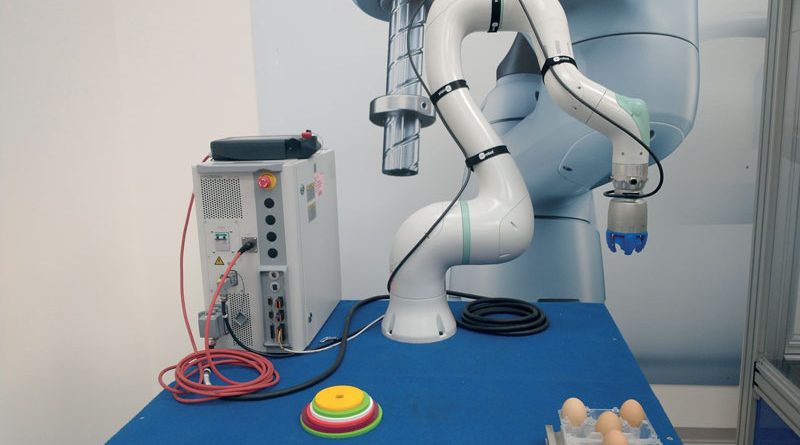The secrets for making a company grow
K.L.A.IN.robotics has been on the market for over 20 years and has been growing ever since it was founded, so much so that in 2021 it opened its new, larger headquarters. The investments enabling this enlargement are related to the expansion of the product portfolio, but also to the training of young people. Fabio Greco, CEO of K.L.A.IN.robotics, spoke to us about this.
“This new location was created for one reason: companies must either grow or close,” Fabio Greco, CEO and founder of K.L.A.IN.robotics, stated. It is normal that in the process of growth, an expansion of the physical space should follow. The bet I am making is that in a few years’ time even this place will be too small”. The one in via Sergio Bresciani 7, also in Brescia, is in fact the fourth location in the company’s more than twenty years of history. The previous one, however, has not been totally abandoned: it will become a training centre with three classrooms for training courses, and the old laboratories will be transformed into a product warehouse. “This growth,” Fabio Greco explained, “is due not only to the automation market trend, but also to the expansion of our product portfolio”. In 1999 K.L.A.IN.robotics was founded to distribute Denso brand robots in Italy, which still represents the core business of the Brescia-based company; over the years other brands have been added: Hyundai, MiR, OnRobot, Effimat, EyeFeeder and F&P. In addition to Italy, over the years K.L.A.IN.robotics has also approached the markets of Italian Switzerland, Algeria and Tunisia, where there are strong development opportunities. “I also believe – Greco continued – that our growth has been favoured by the creation of an educational section, founded about three years ago, which has allowed us both to sell dedicated products and to make our company known”.
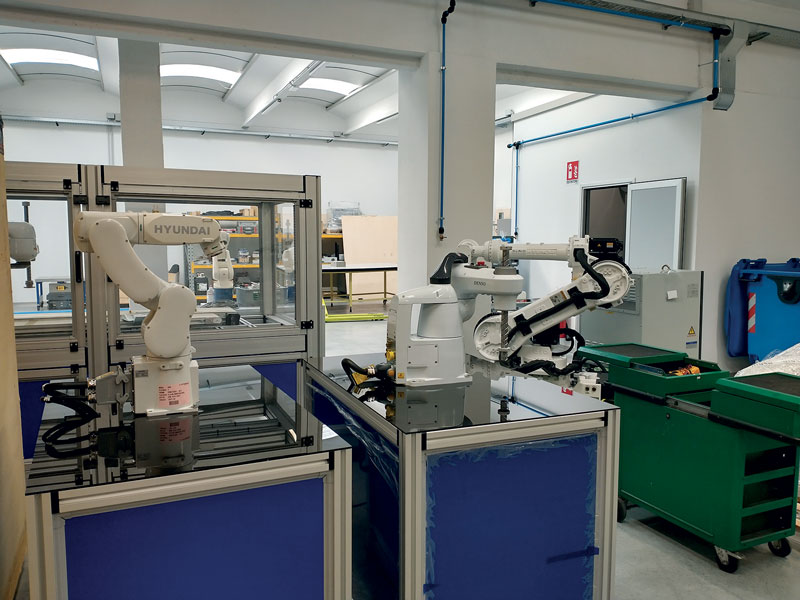
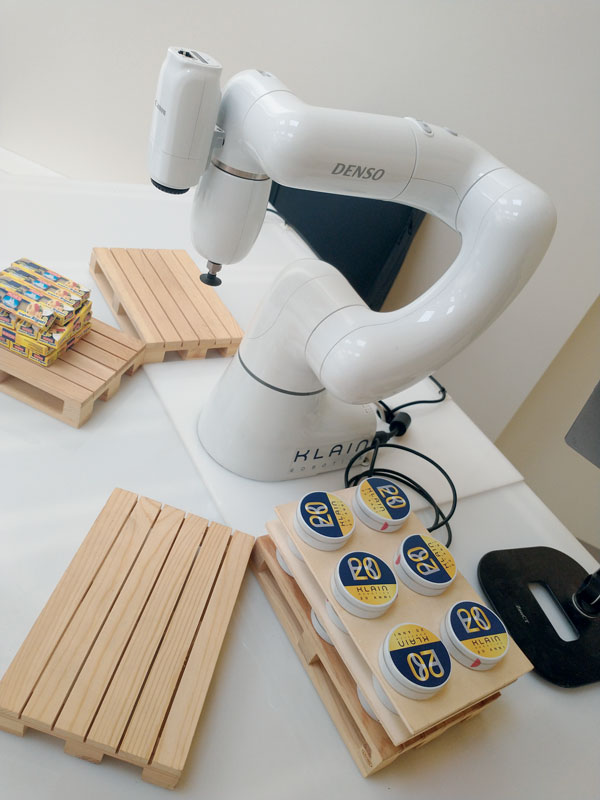
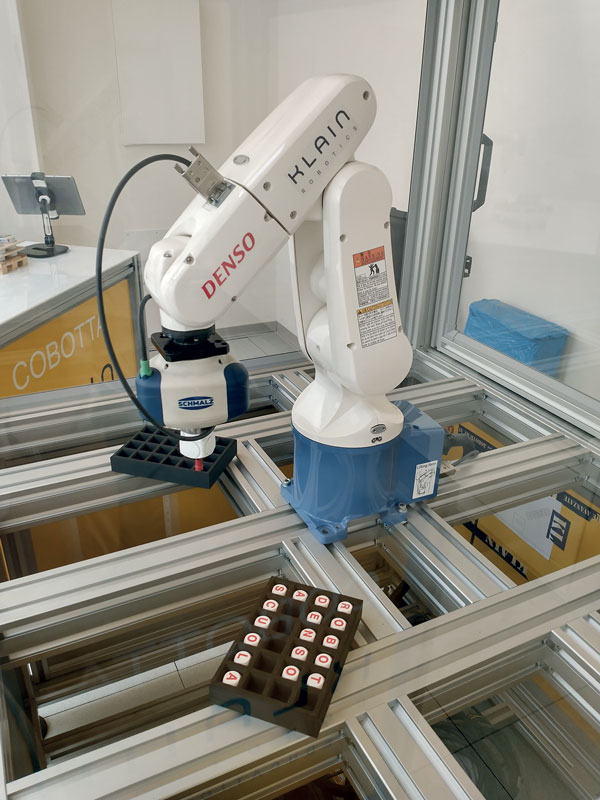
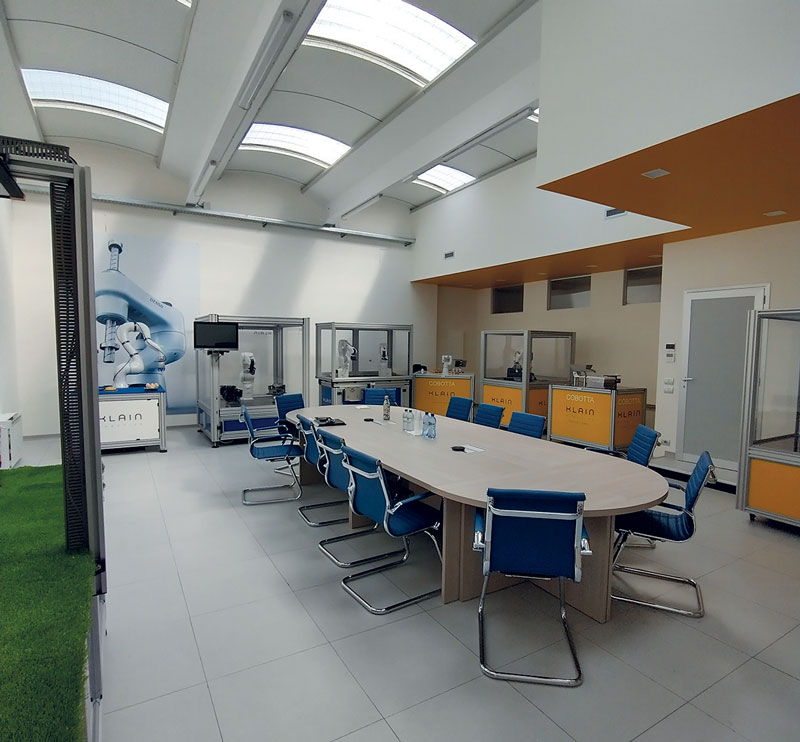
The importance of training
The educational section,” Fabio Greco related, “was created because I have always enjoyed teaching robotics to students. Moreover, today it is a need: companies need young people with certain skills, which schools however no longer provide”. Educational projects have moved out of companies: in partnership with AIdAM – Associazione Italiana di Automazione Meccatronica (Italian Association of Mechatronics Automation) and with the patronage of MIUR, the M2A Mechatronics Network was set up, a network project for dynamic collaboration between companies in the mechatronics sector and schools, technical institutes and technical high schools. The project should see the creation of a number of laboratories throughout Italy, where young people can be properly trained on the world of automation.
“In recent years”, Fabio Greco stated, “schools have trained students to program toy robots, but it would be better to have them already working on real industrial robots. For example, K.L.A.IN.robotics proposes Cobotta, a small collaborative produced by Denso, designed specifically for exercises, which uses the same languages as the industrial robots and cobots used in companies, and is therefore an excellent training ground. In this way, young new graduates can come to the company with a minimum amount of experience, which can make their first work experiences much easier. The M2A Mechatronics Network project has shown that, by working together and in synergy, results can be achieved: about a hundred schools have already joined in just a few years. “Young people,’ Fabio Greco concluded, ‘must have adequate technical knowledge, especially in a country like Italy which has a great vocation and a strong manufacturing tradition. We cannot lose this culture, nor risk seeing this precious sector fail. We have to make this world better known to students, people and above all institutions”.

